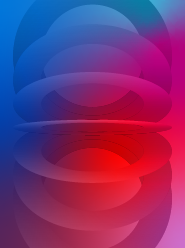
STIC AmSud
Starting year: 2025
Ending year: 2026
Leading institutions:
-
AGORA project-team, Inria Lyon Centre, Inria (France)
-
Universidad de Chile (Chile)
-
Universidad Diego Portales (UDP) (Chile)
-
Universidad Tecnológica Metropolitana (UTEM) (Chile)
-
Universidade Federal de Santa Catarina (UFSC) (Brasil)
Project Summary
The DORSAL-IoT project is dedicated to pioneering efficient downlink communication algorithms and protocols within the Direct-to-Satellite IoT (DtS-IoT) landscape, utilizing Low Earth Orbit (LEO) satellite networks. While Long Range Wide Area Network technologies such as LoRa/LoRaWAN are widely used in today’s Internet of Things, their efficiency is yet to be proven in the satellite domain. DORSAL-IoT focuses on optimizing the use of LoRa/LoRaWAN for effective operation within the unique challenges of space. The central ambition of DORSAL-IoT is to develop downlink communication algorithms and protocols that address the constraints of IoT communications in space. This initiative is poised to catalyze advancements in the Non-Terrestrial Networks (NTN) sector, offering innovative solutions for efficiently transmitting data back to Earth in resource-limited satellite environments.
The DORSAL-IoT project proposal focuses on improving downlink communication in Direct-to-Satellite Internet of Things (DtS-IoT) systems, particularly for LoRaWAN-based networks. The key aim is to develop efficient techniques to address challenges in downlink communication, which is crucial for robust data exchanges and remote device operations in DtS-IoT. The project brings together experts from Inria (through the Agora research group) and several Chilean, and Brazilian institutions to leverage their strengths in satellite network operations, medium access control (MAC) layer, Low-Power Wide Area Networks (LPWAN) protocols, physical layer, deterministic routing, energy-aware relay, data compression, and nano-satellite engineering. The first year's activities include system survey, use case identification, requirement definition, downlink design and optimization, and dissemination. The project has a strong potential for academic and industrial impact in areas like asset tracking, remote environmental monitoring, and global data collection.
Team
In France:
-
Oana Iova, researcher, DORSAL-IoT coordinator AGORA project-team, Inria Lyon Centre, Inria
In Chile:
-
César Azurdia, researcher, DORSAL-IoT coordinator, Universidad de Chile
-
Diego Dujovne, researcher, DORSAL-IoT coordinator, Universidad Diego Portales
-
Samuel Montejo, researcher, DORSAL-IoT coordinator, Universidad Tecnológica Metropolitana
In Brazil:
- Richard Demo Souza, researcher, DORSAL-IoT coordinator, Universidade Federal de Santa Catarina
